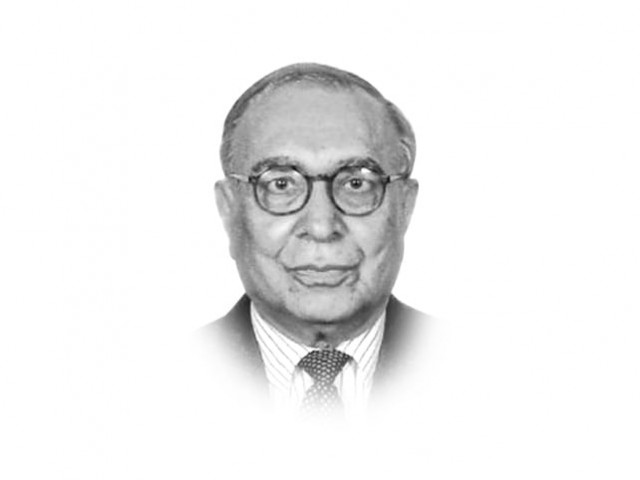Uneasy thoughts in the New Year
The international context in which Pakistan operates does not brook delays in resolving its fundamental problems.

The multiple crises that confront Pakistan just as 2012 dawns are all aggravated by a singular deficit of leadership that does not measure up to the enormity of domestic and international factors impinging on its security and prosperity. In fact, what has averted a total collapse so far is the sheer resilience of the people who have an extraordinary capacity for absorbing pain. In the face of looming anarchy, they have held together and demanded peaceful change.
The sufferings of the people have worsened because of a particular phenomenon that defies easy explanation. In China, India, Russia and Brazil, the respective economies have benefited greatly from the performance of state enterprises that creatively adapted themselves to a world being shaped by the dominant post-1990 neo-liberal economic order, without giving up their basic structure of state-owned corporations. This adaptation has been successful enough to make economists rethink the paradigm in which the prescription of wholesale privatisation was imagined as the only option. In Pakistan’s case, the worst of both worlds has happened. Privatisation remained half-hearted and capricious, while mega enterprises such as the Steel Mills, the Railways and the PIA went into what looks like a terminal decline. In the popular view, unbridled corruption of the ruling elite has simply sapped away their lifeblood; in conspiracy theories, the spectacular collapse of the state sector has been deliberately engineered to open it up to cronyism.
There has been some useful legislation towards the realisation of the idea of provincial autonomy promised in the 1973 Constitution. Unfortunately, this belated exercise falls short of the expectations in Balochistan. Unlike other constituents of the federation, Balochistan now harbours an opinion — whatever its size — that is almost incompatible with the autonomy visualised in the 1973 Constitution. The gap should have been filled by dynamic leadership at the centre with policies creating shared interests and stakes. General Pervez Musharraf was much too vainglorious and arbitrary to have done that but there has also been a lamentable failure of the elected government to pioneer an altogether fresh approach to the basic issues in that troubled but indispensible province.
The international context in which Pakistan operates today does not brook delays in resolving its fundamental problems. Pakistan’s relations with the United States have run into difficulties more serious than ever before because of the militarisation of American foreign policy in the region. Great powers assert themselves anyway, but become dangerous when they start backing up their coercive diplomacy with actual use of force. The new year will test Pakistan’s diplomacy to the utmost, especially as Washington rings changes in its Afghanistan strategy. Washington’s current war of words with Iran is ominous; either side could misperceive and miscalculate with dire consequences for the region. The volatility of the regional situation warrants a faster pace of normalisation with New Delhi. This may not be possible in 2012 as India synchronises its regional moves with the United States and also wades deeper into the complexities of its internal politics beset with problems of an economic slow- down. Pakistan’s own political landscape is likely to see tempests as the unviable status quo is challenged. The beginning of 2012 needs deep reflection by all the stakeholders in Pakistan.
Published in The Express Tribune, January 2nd, 2012.















COMMENTS
Comments are moderated and generally will be posted if they are on-topic and not abusive.
For more information, please see our Comments FAQ